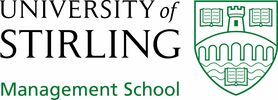Investigating the impact of public interventions to reduce drinking water lead contamination on infant health in Scotland
A project partially funded by the Urban Big Data Centre, Glasgow
PhD studentship funded SGSSS (Data Sets)
Mirko Moro (lead project)
Kevin T Schnepel,
Nick Hanley,
Anthony Higney
Brief description of the project
Labour and health economists appreciate that positive birth outcomes (such as higher birth weight) and infant health are strong predictors of successful academic and labour outcomes later in life. Lead is a very toxic element that can have adverse consequences on babies and children’s health, even at low concentrations.
There are different sources of lead exposure. Tap water and leaded-petrol were two of the most common in the UK until mid 1990s. Lead service pipes were widely used around the world to connect homes to street water mains. Lead is dissolved from the interior of the pipe and ingested when drinking from the tap.
We propose to examine how specific interventions to reduce exposure to tap water lead in Scotland influenced pregnancy outcomes (e.g., live births, birth weight, stillbirths) and infant mortality. The approach to be taken combines historical and administrative health data with modern statistical techniques.
The analysis we propose will study two water treatment programmes that successfully reduced lead content in tap water in Glasgow in 1978 and 1989. The aim is to develop causal estimates of lead removal on the universe of births and infant deaths in Glasgow by employing difference-in-differences and regression discontinuity design. Babies and young children worldwide are still routinely exposed to potentially hazardous levels of lead today, from multiple sources, both in developed (see Flint, Michigan, USA) and developing countries. Being able to identify the health effects of exposure to lead is thus very important.
This project can be seen as the first building block towards a broader research programme about the short- and long run impacts of lead removal in Scotland that will be expanded to include further urban areas and acquisition of other administrative datasets, such as education and crime, will be investigated further by the team.

